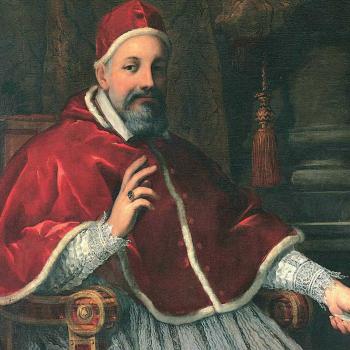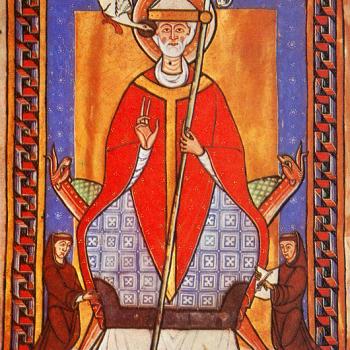Who is Josef Kleutgen (1811-1883)? The name is not a household name, except in my household! I’ve recently completed a book manuscript—The Pope and the Professor: Pius IX, Ignaz von Döllinger, and the Quandary of the Modern Age—and Kleutgen figures quite prominently in it. He was arguably the ablest student of Thomas Aquinas in the nineteenth century and the principal influence behind Dei Filius, a dogmatic constitution on the relationship between faith and reason, promulgated at Vatican I (1869-70). This document has long stood in the shadow of the other major (and controversial) constitution at Vatican I, Pastor Aeternus, which made Papal Infallibility a binding teaching for Catholics. This is too bad because Dei Filius has much to say to all Christians struggling to figure out the appropriate relationship between faith and reason. Permit a generous quotation from Dei Filius:
But, although faith is above reason, nevertheless, between faith and reason no true dissension can ever exist, since the same God, who reveals mysteries and infuses faith, has bestowed on the human soul the light of reason; moreover, God cannot deny Himself, nor ever contradict truth with truth. But, a vain appearance of such a contradiction arises chiefly from this, that either the dogmas of faith have not been understood and interpreted according to the mind of the Church, or deceitful opinions are considered as the determinations of reason. Therefore, “every assertion contrary to the truth illuminated by faith, we define to be altogether false” [Lateran Council V]. . . .
And, not only can faith and reason never be at variance with one another, but they also bring mutual help to each other, since right reasoning demonstrates the basis of faith and, illumined by its light, perfects the knowledge of divine things, while faith frees and protects reason from errors and provides it with manifold knowledge. Wherefore, the Church is so far from objecting to the culture of the human arts and sciences, that it aids and promotes this cultivation in many ways. For, it is not ignorant of, nor does it despise the advantages flowing therefrom into human life; nay, it confesses that, just as they have come forth from “God, the Lord of knowledge” [1Sam 2:3], so, if rightly handled, they lead to God by the aid of His grace. And it (the Church) does not forbid disciplines of this kind, each in its own sphere, to use its own principles and its own method; but, although recognizing this freedom, it continually warns them not to fall into errors by opposition to divine doctrine, nor, having transgressed their own proper limits, to be busy with and to disturb those matters which belong to faith.
Kleutgen was also one of the masterminds behind Pope Leo XIII’s encyclical, Aeterni Patris (1879), which led to a revival of Thomistic thought in modern Catholicism, and helps explains today the thought, inter alia, of someone such as Alasdair MacIntyre, who mentions Kleutgen in his little book, God, Philosophy, and Universities.
One reason that Kleutgen is not better known is that he wrote in Latin or German, and very little of his work has been translated into English—although much has been translated into French and Italian. Among other scholarly productions, he is especially well known for two multivolume works: Die Philosophe der Vorzeit and Die Theologie der Vorzeit, which might be roughly translated as “The Philosophy of Earlier Times” and “The Theology of Earlier Times.” Vorzeit here is in contrast to Neuzeit, the German term for “modernity,” although now Germans use Modernität as well.
For a secondary introduction to Kleutgen, I recommend: Hector Scerri, “The Revival of Scholastic Sacramental Theology after the Publication of Aeterni Patris,” Irish Theological Quarterly 77 (2012): 265-85. And if there is an ambitious translator out there, Kleutgen’s work is ripe for the picking.













